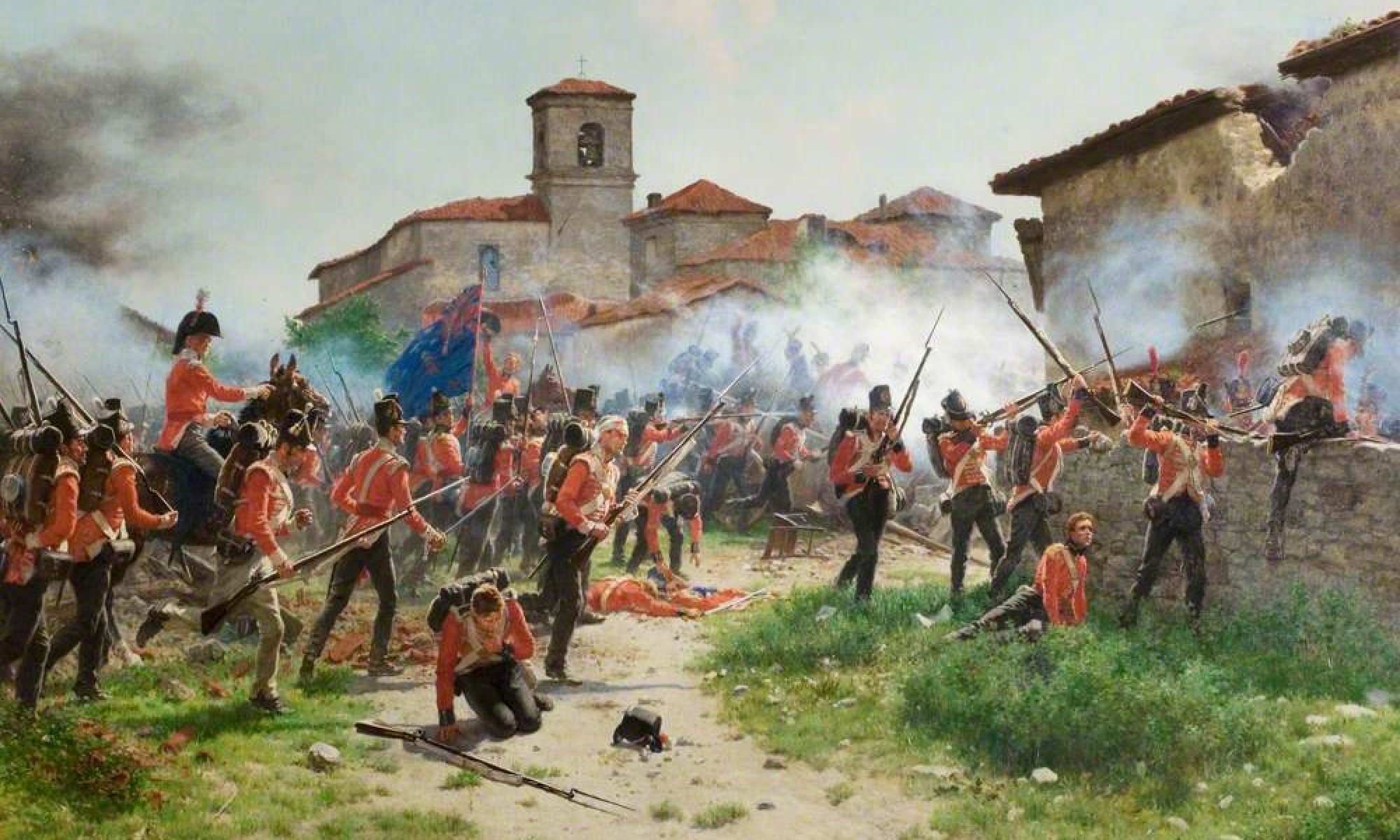I’ll bet allot of you don’t know about the Duke of Wellington’s mission to St Petersburg in 1826. Well I wasn’t too familiar with it either, so I looked into it and found a great story, so after having my Adventure I had to let you all know about it, this is the story of the Duke and the Tsar, or more accurately of the St Petersburg Protocol, mysterious isn’t it? Continue reading “The Duke and the Tsar part 1.”
Britain’s Greatest Battle
On the 20th of April the National Army Museum London will hold a speakers event to determine Britain’s Greatest battle. A selection of battles covering a span of time from the English Civil War to Afghanistan has been chosen, and a online poll has been opened for the public to vote for five finalists that guest speakers (as yet unnamed) will argue for on the 20th. Previously the Museum has chosen Britain’s Greatest General, and Britain’s Greatest Enemy General by this means, and has found that The Duke of Wellington and Field Marshal Slim (A name not generally known) where tied for greatest general. And by a large margin George Washington beat out Napoleon for British enemy number 1.
At this moment the leader board looks like this:
Battle Votes
1 D-Day/Normandy 256
2 Waterloo 248
3 Musa Qala 131
4 Imphal/Kohima 130
5 El Alamein 115
But there is a choice of 20 well and not so well known choices.
You can vote here for the battle you think is your greatest. http://www.nam.ac.uk/exhibitions/online-exhibitions/britains-greatest-battles
Here’s my thoughts.
For a long time I have had WM stamped after my name. These initials, found on muster books at the end of a soldier’s name who fought under the Duke of Wellington at Waterloo . Essentially this makes me biased, but everyone who gets involved in this debate will have their favourite. However I feel perfectly certain in my belief that Waterloo deserves its place in the popular imagination as Britain’s Greatest Battle.
Why?
Because The victory over Napoleon in 1815 has numerous threads that lead down to today. It was the full stop of an age and the first word of another, the 18th century died on the slopes of Mont St Jean that sunday morning, and modern Europe was born by the gunsmoke tarnished sunset, and an Empire was being born out of the ashes of another. The reason why the British Army is the force it is today is Becasue of the steadiness and dedication of the troops at Waterloo. The image of the steel rimmed squares of British redcoats, being swamped by angry sea’s of French Cuirassiers, inspired the nation and was the epitome of the stiff upper lip, the Victorian Empire we are descended from, came about not Becasue of steam and mills, but Becasue the Waterloo men won the peace that allowed progress to happen.
As a military victory, it shows Wellington’s mastery of position, deployment and improvisation, on the 15th of June he should have been knocked out of the game, but he was able to concentrate his force and fall back to ground he knew, where he could be supported and utterly crush Napoleon. The Duke said his Infantry never behaved so well, and indeed never had the ties of Regimental loyalty and dicipline been tested so hard, in all arms, from the redcoats to the cavalry’s magnificent charges to the solidness of the Artillery, all played their part in the eventual victory.
The reason I have decided to write this is because I myself cannot see how Washington could have defeated Napoleon, or how Field Marshal Montgomery was a poorer general than Slim, just Because Slim has unjustly been forgotten, in my opinion that is like saying General Hill was better than Wellington just because he didn’t have as much notoriety.
If we consider what a Great Battle is, it clearly is a conflict that shaped the history that followed it or possibly overshadows the battles that preceded it. That by virtue of its outcome has influenced the world today, and has left an indelible impression on the tactical thinking, motivation and performance of the military units that can trace their ancestry to it. This is not to say that the older the battle the more deserving, for not every battle has been fought with the same stakes riding on it and thus has a lessened impact on today.
Waterloo represents the peak of proficiency of the army that Wellington fought in. This why for the rest of his life he fought to keep it that way with only minor changes creeping in. The British would not fight another war against an “Industrial power” until the Crimea in 1854 so the tactical benefits of the battle where obsolete almost as soon as the last shot was fired, yet the use of squares, lines, volleying and cavalry was widely used across the Empire, but in different ways. Indeed it could be argued that WW2 was the final proving of the post Waterloo army and, the post world war army has yet to evolve into its penultimate form as it faces the challenges of counter insurgency and guerrilla warfare, perhaps Iraq and Afghanistan will prove to be this benchmark and another change awaits. In this sense Waterloo’s influence on the following generations of soldiers was tradition and spirit, which obviously carried through to the first and second world war, and by extension to the troops fighting today.
Please follow the link and vote how you think is best
Thanks for reading.
Josh.


